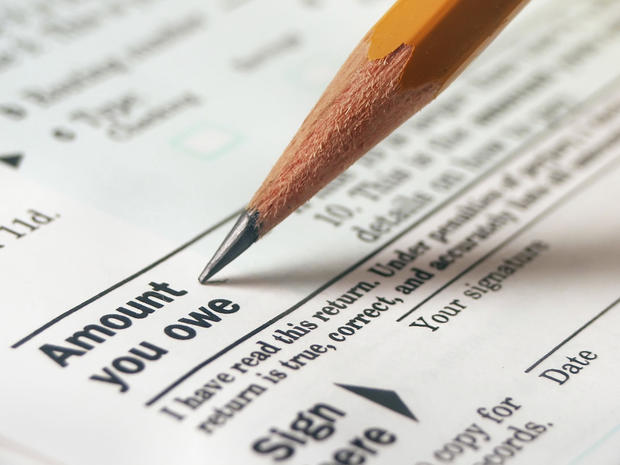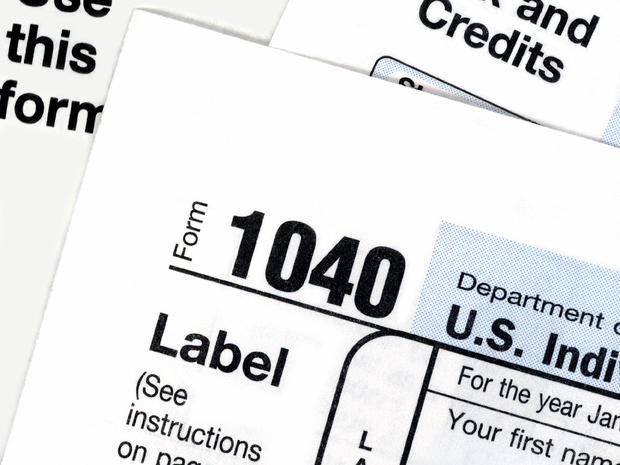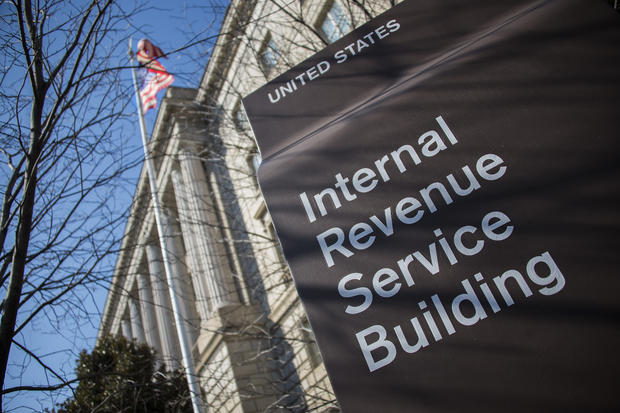5 tax mistakes that could land you in major trouble
By Daniel Cross/GOBankingRates
It's that time of the year again. You're getting all your W-2 forms, deductions and other paperwork together while mentally making sure everything is in order. Tax laws change every year, and a mistake could end up costing you money or worse -- you could be accused of tax fraud.
Minor mistakes happen all the time and won't necessarily result in a threatening IRS letter requesting an audit coming to your mailbox in May. Still, you want to minimize the chances of anything wrong occurring. Unless you're a seasoned tax professional, you probably have a few misconceptions about how to file the perfect mistake-free return.
Here are five unintentional errors you might be making that could make the IRS look twice.
Missing or incorrect information
One of the most common mistakes people make is simply forgetting to fill out a part of the return or accidentally putting something down on the wrong line. An omission of vital data, like a Social Security number, will almost certainly cause delays. A simple oversight, like putting your deductions on the wrong line, might prompt a deeper investigation. If you have to pay out, and a mistake on the wrong line ends up changing it to a refund, it could be misinterpreted as tax fraud.
Math miscalculations
Odds are, unless it happens on a regular basis, accidentally writing down a deduction of $25,000 in mortgage interest when you meant to say $2,500 won't label you as a criminal. Still, it's good practice to double check every figure before committing it to a tax return. Adding instead of subtracting might be a simple blunder to make, but it could drastically change your actual liability. And you definitely don't want to miscalculate your total income. This is where tax software really helps you out by pointing out inconsistencies. Returns themselves often have redundancies built in as well, so it reduces the chances of you making the same mistake twice. Auditors know that calculations can get mixed up, and they're trained to know what to look for.
Using the wrong type of return
You might have been in a rush to grab that 1040 from your local post office, but double check before you send it off. A 1040EZ form is an easy thing to mix up, and it could mean a substantial difference in what you're actually claiming. If you have a straightforward return -- no IRA deductions, student loan write-offs, business expenses, etc. -- then a 1040EZ will be perfectly fine to use. However, if you know you need to account for these things, and your return doesn't ask you about it, you probably picked up the wrong one.
Claiming the wrong deduction
Deduction rules vary by type, but they can easily be misunderstood. If you're an entrepreneur, then you know how valuable deductions can be. Make sure you double check the rules for each one before claiming it to avoid looking suspicious. For example, if you work from home, you can only claim a certain percentage of your home dedicated to your business activities as a tax deduction. Anything over that might give auditors the wrong idea. Again, using tax software will break down the rules for each circumstance and actually give you an error if you make a mistake, preventing you from accidentally falsifying your return.
Unreported income
You might think that certain income doesn't have to be disclosed when filing your taxes, but this is a misconception. Even if you earned less than $400 from contract or freelance work, which exempts you from paying self-employment taxes, it should still be reported as income. This includes overseas gains -- the myth of offshore banking is that it hides assets from the government. However, you're actually required to disclose and report foreign income. That rental property in Costa Rica might not be on the IRS's radar immediately, but if you fail to disclose it, you could be looking at a stiff penalty.
Editor's note: This post has been updated to correct an error about reporting contract or freelance income.
Negligence doesn’t equal fraud
The good news is that the IRS doesn't consider accidental mistakes as fraud. A case for intention has to be made before the IRS actually charges you with a crime. Even so, mistakes can cost you a refund at best and a fine at worse. You could face penalties and become a blip on the IRS's radar for future returns. If you're doing your own taxes this year, make use of free software that the IRS makes available on its website. Or, call the Taxpayer Advocate Services hotline. They're there to help out so you don't get into trouble for making errors.






